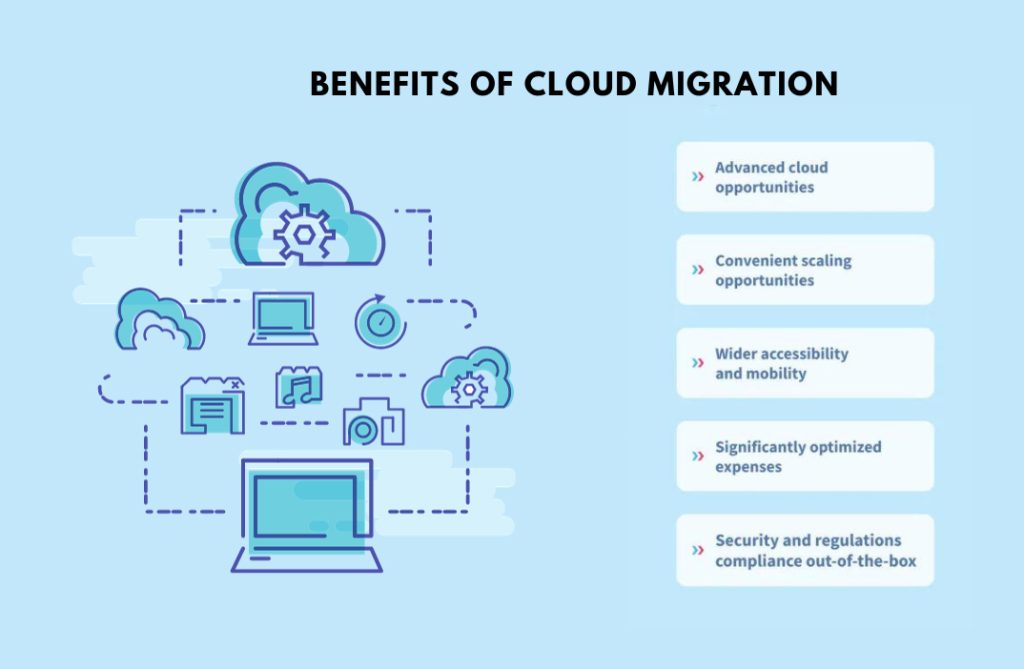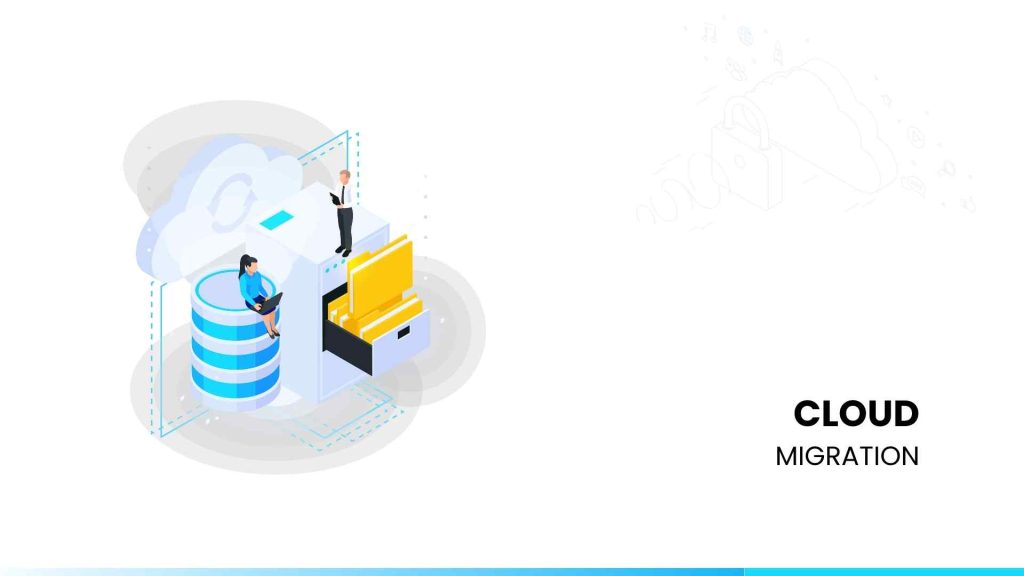In modern enterprise management, the deployment and optimization of ERP systems are pivotal milestones. Businesses seek to enhance their competitive edge, streamline operations, and embrace digital transformation. ERP cloud migration emerges as a strategic imperative.
The shift from traditional on-premises ERP solutions to cloud-based platforms represents an integral step towards achieving greater efficiency, flexibility, and scalability while mitigating operational challenges. Cloud migration is more than just a technological transition; it is a transformative journey that necessitates meticulous planning, robust execution, and an unwavering commitment to achieving enhanced operational excellence.
We delve into the multifaceted realm of Cloud migration, offering a comprehensive understanding of the intricacies, benefits, and considerations that define this strategic endeavor. In the pursuit of success, organizations must navigate the complexities of data migration, integration, security, and change management, all while recognizing the potential for significant cost savings and newfound agility.
Cloud migration refers to moving an organization’s ERP system from an on-premises infrastructure to a cloud-based environment. This shift to the cloud can bring about several advantages, including enhanced scalability, flexibility, security, and cost-efficiency.
Key Considerations for Cloud Migration
Assessment and Planning:
Before embarking on a cloud migration journey, companies must thoroughly assess their current ERP system. It includes evaluating data dependencies, system integrations, and the overall state of the existing infrastructure.
A well-defined migration plan is essential. This plan should outline the migration timeline, responsibilities, and potential risks. It’s also important to involve key department stakeholders to ensure a successful transition.
Selecting the Right Cloud Solution:
Choosing the appropriate cloud solution is a critical decision. Organizations can opt for public, private, or hybrid cloud environments based on their unique needs. The choice should align with their security, compliance, and performance requirements.
Data Migration:
Data is the lifeblood of any ERP system. Transferring data from on-premises to the cloud can be complex. A comprehensive data migration strategy should be in place to ensure a seamless transition without data loss or corruption.
Integration with Other Systems:
Most companies rely on multiple software systems that must interact with their ERP. Ensuring the cloud-based ERP integrates with other applications is vital for smooth operations.
Security and Compliance:
Data security and regulatory compliance are paramount when moving sensitive business information to the cloud. Companies should work closely with their cloud provider to establish strong security measures and compliance protocols.
Scalability and Flexibility:
One of the primary advantages of cloud migration is scalability. Companies can easily adjust their resources to accommodate growth or fluctuations in demand. Ensuring the cloud solution can effectively scale with the organization’s needs is crucial.
Training and Change Management:
Employees must adapt to the new cloud-based ERP system. Proper training and change management processes should be implemented to minimize disruption and enhance user adoption.

Benefits of Cloud Migration
Cost Savings: Cloud-based ERP solutions reduce the need for extensive on-site hardware and software investments. Companies can benefit from pay-as-you-go pricing models and avoid large upfront capital expenses.
Scalability: Cloud solutions offer the flexibility to increase resources as needed, allowing businesses to quickly adapt to changing business requirements.
Security and Compliance: Reputable cloud providers provide advanced security measures and often have compliance certifications, enhancing data protection and meeting industry-specific regulatory requirements.
Accessibility and Collaboration: Cloud-based ERP systems enable employees to access critical business data and applications from anywhere, promoting remote work and collaboration.
Maintenance and Updates: Cloud providers handle system maintenance, updates, and security patches, reducing the burden on in-house IT teams.
Challenges of Cloud Migration
Data Migration Complexity: Transferring vast amounts of data from on-premise software to cloud migration can be time-taking.
Integration Issues: Ensuring the cloud-based ERP seamlessly integrates with existing software and methods can be complex.
Change Management: Employees may resist the transition to a new system. Effective change management is required to facilitate a smooth shift.
Cloud migration is a strategic move that can revolutionize an organization’s operations. It offers cost savings, scalability, enhanced security, and improved accessibility. However, it’s crucial for companies to carefully plan and execute their migration. By understanding the key considerations and challenges, businesses can make informed decisions that will position them for success in the cloud-based ERP era.
Acumatica Cloud ERP offers a seamless and efficient solution for organizations looking to transition to the cloud. With cloud-based capabilities, Acumatica streamlines the often complex process of cloud migration. This ERP system allows businesses to easily scale their operations, as it’s designed to be agile and flexible in the cloud environment. Acumatica’s accessibility from anywhere with an internet connection ensures remote access for employees, enabling collaboration and productivity regardless of location.
Moreover, its comprehensive cloud-based features enhance data security and reliability, reducing the burden of on-premises infrastructure management. As organizations migrate to the cloud, Acumatica ERP simplifies the transition, providing them with the agility and efficiency they need to thrive in today’s dynamic business landscape. Feel free to reach out to us for a tailored ERP solution.

Vijay comes with a vast experience in ERP and enterprise solutions space with about 20 years of experience in various packaged application like Acumatica, SAP, Orion, Salesforce.com, SugarCRM and, SalesLogix.

